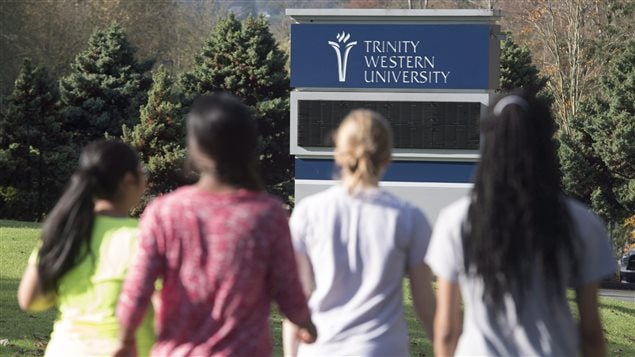A small Christian university in the Western province of British Columbia is celebrating another legal victory after the province’s Court of Appeal upheld the right of future graduates of the faith-based Trinity Western University (TWU) Law School to practise law in the province.
The ruling upholds a previous decision made by a lower court judge who ruled the Law Society of B.C. was wrong to deny accreditation to future alumni of the Christian university’s proposed law school on the grounds that its covenant, which required all students to pledge to be sexually intimate only with a member of the opposite sex to whom they are married, discriminated against rights of LGBTQ persons.
At issue was whether the Law Society met its duty to reasonably balance the conflicting Charter rights engaged by its decision: the sexual orientation equality rights of LGBTQ persons and the religious freedom and rights of association of evangelical Christians, the Court of Appeal said.
The panel of justices ruled on Tuesday that the society’s decision to deny accreditation limits the university’s right to freedom of religion in a disproportionate way.
Accomodating differences
The case raises important issues about tolerance and respect for differences in a diverse and pluralistic society, the court said in its decision.
“A society that does not admit of and accommodate differences cannot be a free and democratic society—one in which its citizens are free to think, to disagree, to debate and to challenge the accepted view without fear of reprisal,” the court wrote in its ruling. “This case demonstrates that a well-intentioned majority acting in the name of tolerance and liberalism, can, if unchecked, impose its views on the minority in a manner that is in itself intolerant and illiberal.”
TWU welcomed the ruling, which it said allow the Langley-based institution offer 60 additional law school spots and “fill a void in Canadian legal education.”
“Everyone, religious or not, should celebrate this decision as a protection of our Canadian identity,” Amy Robertson, a university spokesperson, said in a statement. “The freedom to believe as we choose and practice accordingly is one of the most profound privileges we have as Canadians. We are a diverse, pluralistic society, committed to respecting one another even when we disagree. This is something people in many other countries don’t enjoy.”
Case headed for Supreme Court hearing?
It’s unclear if the law society will challenge the ruling. In a statement quoted by CBC News it said the ruling “adds another dimension to an already complex issue,” and that it is considering its next steps.
But Tuesday’s ruling is unlikely to be the last word in the long-running legal battle by the university’s law school, which has also been fighting for recognition in Nova Scotia and Ontario as well, CBC News reported.
The case appears almost certain to end up before the Supreme Court of Canada after the Ontario Court of Appeal sided with the Law Society of Upper Canada in June.
In late September, the university sought an appeal of that decision at the Supreme Court of Canada, Robertson told RCI. However, it is up to the Supreme Court to decide whether the issue merits being heard in front Canada’s highest court.
“We believe we did everything to demonstrate that this is an issue of national importance,” Robertson said.
Meanwhile in Nova Scotia, the Barristers’ Society announced in July it would not appeal a ruling allowing TWU graduates to practise in the province.
Five law societies — in Alberta, Saskatchewan, Manitoba, New Brunswick and Prince Edward Island — have all granted accreditation to the law school, while the law society in Newfoundland and Labrador has yet to decide its position.
With files from Mike Laanela and Farrah Merali of CBC News







For reasons beyond our control, and for an undetermined period of time, our comment section is now closed. However, our social networks remain open to your contributions.